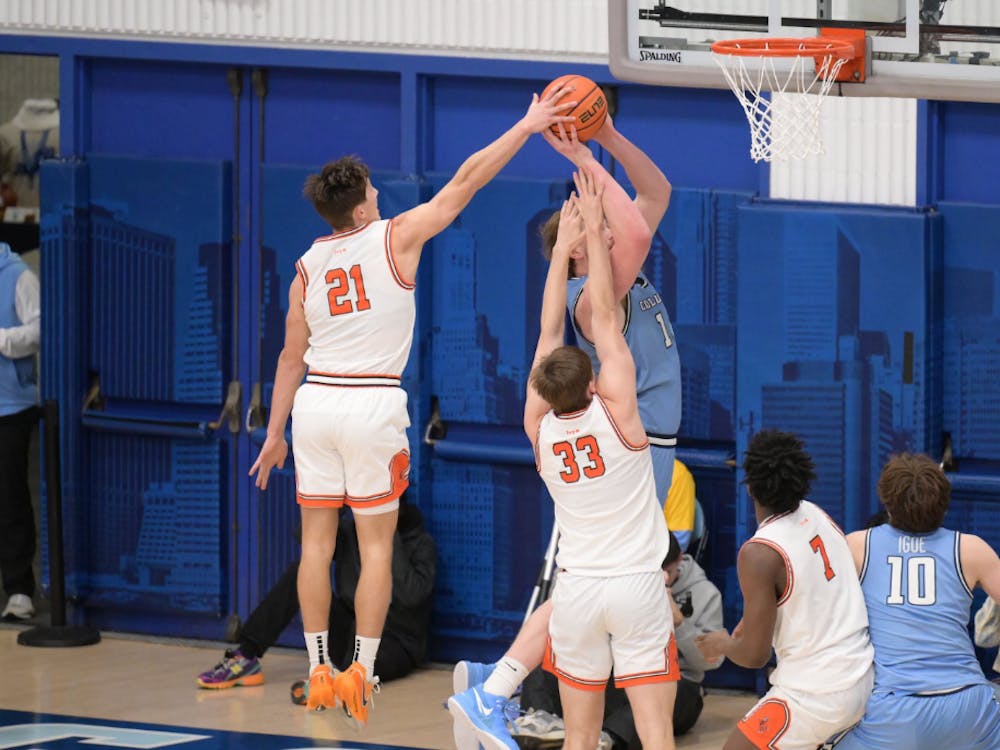In the past decade, Princeton athletics have become associated with lacrosse dominance and overall excellence in interscholastic competition. The dramatic images our teams have generated — celebrations after winning Ivy League titles and bonfires after defeating both Harvard and Yale — represent their success.
Princeton's winning tradition has led us to measure success in terms of championships and all-league honorees. The predictable result of such expectations is that we now rely on our peers and media sources to inform us about Princeton's interscholastic success, which we assume represents the collective accomplishments of all talented student-athletes at Princeton.
These sorts of generalizations, however, neglect an entire facet of campus athletics. By measuring success in comparison to other schools, we inherently ignore athletic accomplishments that cannot be quantified in the same manner as varsity achievement. Essentially, we overlook Princeton's independent athletes: individuals who train for challenges beyond the interscholastic bubble.
Princeton's independent athletes commit themselves to their chosen sport and perform at a high level without the benefit of coaches, teammates or a full-fledged athletic department. To succeed, they must motivate themselves in the absence of a structured practice schedule and a controlled training regiment.
Though I do not want to downplay the talents and work ethics of athletes on Princeton's 38 varsity teams, I hope to prove that, despite stereotypes to the contrary, elite athletics on this campus extends beyond University-sanctioned teams.
Consider Alex Brousseau '08, Katie Zaeh '10 and Henry Barmeier '10, three students who have run marathons during their time at Princeton. All three combine marathon preparation, which requires at least four months of committed training, with already busy Princeton schedules.
Like varsity athletes, they must train consistently if they hope to improve. Unlike varsity athletes, however, they must possess the discipline and motivation to do so on their own because, as Barmeier puts it, "It's not like we have someone supervising us."
Both Barmeier and Zaeh portray their training as mandatory parts of their schedules. Zaeh completes a 60 to 90 minute run before her first class even though she is a college student, a species know to be terrified of early mornings. Even more shocking is the way Barmeier nonchalantly describes his Sunday routine of running for several hours starting "no later than 6:30 a.m." He seems completely unmoved by the fact that, by the time the average Princeton student has woken up, he will have run roughly 20 miles and still have had time to eat multiple meals.

For all their willingness to talk about their training, Barmeier and Zaeh are loath to promote themselves as competitors and talented runners. Both finished in the top three in their divisions at last spring's New Jersey Marathon, and as they look ahead, Barmeier hopes to one day conquer the hilly San Francisco Marathon, while Zaeh aspires to complete a marathon in each of the 50 states.
Barmeier and Zaeh's stories are not unique on the Princeton campus. If only one can overcome the assumptions that every great athlete plays a varsity sport, many other passionate athletes can be found training in Dillon Gym and around Princeton.
The publicized successes of our varsity teams are impressive in their own right, but they also serve as indicators of the strength of many other athletes at Princeton. Sam Dorison is a freshman in Whitman College from Longmeadow, Mass. He can be reached at sdorison@princeton.edu.








